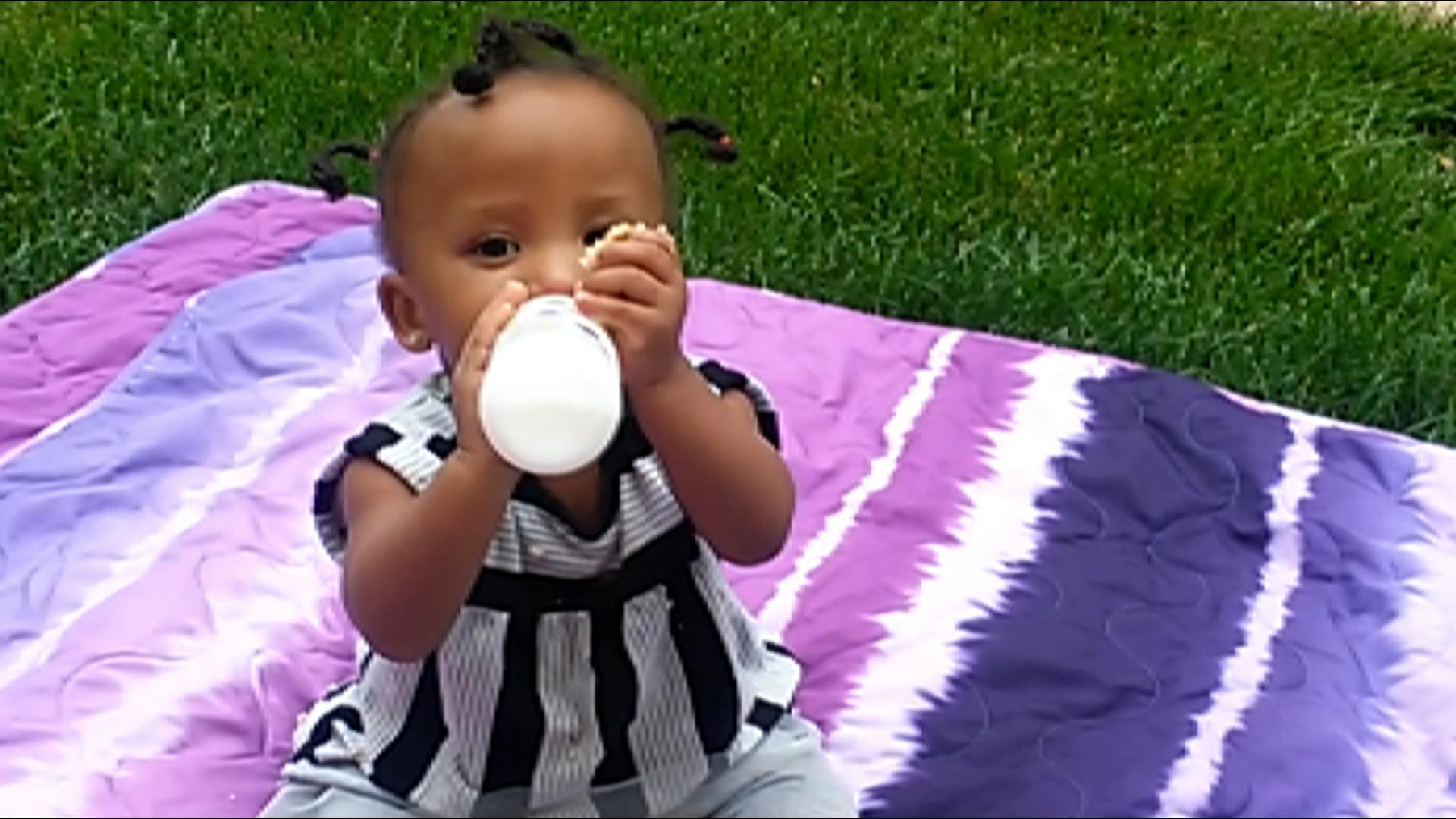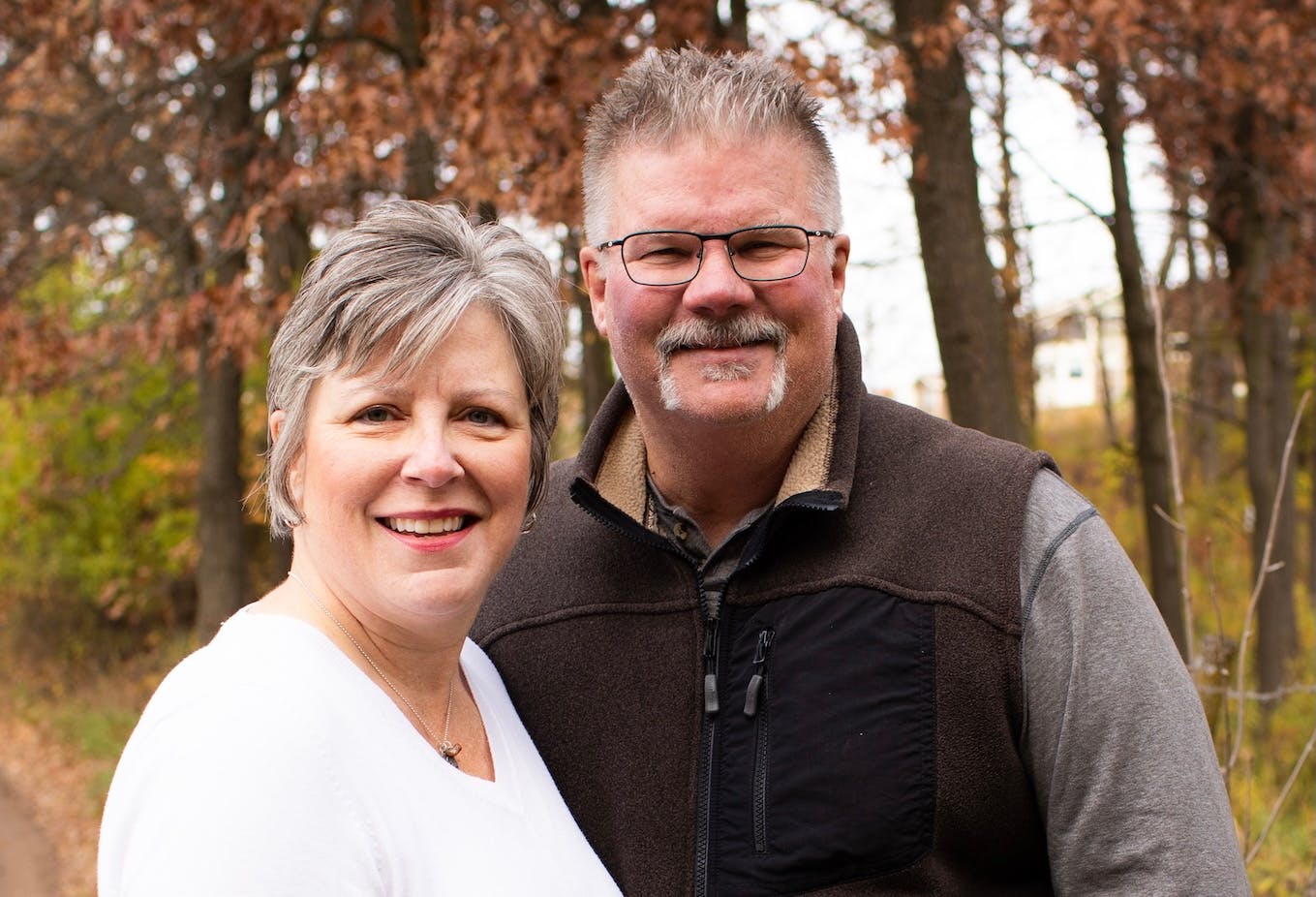KARE 11 Investigates: A boy tried to save his sister from a racist abuser. No one believed him.

A young Black girl tormented and murdered by her racist foster father. A KARE investigation reveals child protection repeatedly failed to do its most important job.
Warning: This story contains graphic depictions and offensive language that may be upsetting to readers.
10-year-old Davonte Bacon calls this part of Crystal Lake cemetery “Babyland,” because so many of those buried here are children.
This is 18-month-old Layla’s final resting place, a child whose last memories were of being abused and shaken by her foster care father.
Davonte and his mother, Latasha, have a difficult time coming here, knowing that his warnings about what was happening to his sister at a foster home some 40 miles south in Jordan were ignored.
It was there that their foster father, Jason Betlach, beat the two children.
He screamed “white power” at the young girl.
He wrote “Loser” on her forehead.
He called her a mongoloid.
He threatened to hit her with a vacuum handle, then stopped within inches and laughed.
Finally, he shook her so violently he killed her.
Though child protection workers didn’t know what was happening at the time, records show that they failed to follow state laws that may have revealed the abuse.
Foster family never licensed or trained
Neither Jason nor his wife, Jessica, were ever trained, licensed or properly vetted to be foster parents, KARE 11 Investigates has found.
The two never went through a state mandated training and were never licensed. A Scott County social worker tried often to schedule interviews with Jessica, who instead put them off as she hid the abuse her foster children were enduring, records show.
By the time an interview was set up, it was too late. Jason shook the girl so violently in August 2018 that she was already brain dead when she was taken to a hospital.
“Voiceless victims shouldn’t be allowed to die because somebody didn’t do their job,” said Attorney Jeff Montpetit, who represents a family trustee in a lawsuit against Hennepin and Scott Counties.
“If people are doing their jobs correctly and doing what is expected of them both under policy and under law – we’re not talking today,” he said.
Hennepin County said in a statement that, “while we cannot comment on pending litigation, the death of any child is always tragic.”
Scott County referred questions to an attorney, who did not respond to a request for comment.
History of failure
Layla’s death was the latest in a string of catastrophic failures involving foster children under Hennepin County’s care.
A lawsuit last year accused the county of missing numerous red flags following the death of 3-year-old Arianna Hunziker, whose foster parents starved her and left her tied to a bed for hours.
In 2018, the county settled a lawsuit for $1.5 million after a foster child who had previously reported suicidal ideations hung herself with a jump rope in her bedroom in 2014.
A class action lawsuit in 2017 accused the county of numerous other child protection failures. As part of a settlement, Hennepin is in the process of analyzing its foster care system to determine what contributed to the abuse and what improvements need to be made.
For Layla’s mother, the promised improvements are too late to protect her daughter.
“This is the system we put in place to protect our kids. To be there when they say we’re not fit to, and they’re ignoring things that are important to not ignore. It’s costing kids their lives and it’s not fair to these children or to their families,” she said.
Red flags missed
Hennepin County Child Protection placed Layla and Davonte into foster care in April 2018 after receiving a report that the girl had a broken leg that was not an accident.
Though the county believed that Layla was being abused, Latasha Bacon denied knowing how it happened. A child protection report concluded that while “the offender was unknown,” the mother had failed to provide a safe environment for the children. A judge agreed and ordered the children removed while Bacon went through the court-ordered steps to get her kids back.
Under state law, social workers must work to place foster children with family members whenever possible. Bacon recommended Jessica Betlach, a close, childhood friend whom she referred to as her cousin. She said she had only met Jason twice and knew nothing about him.
Hennepin CPS agreed to the placement in the Betlachs’ home in Jordan in Scott County – creating a situation in which social workers from two counties were involved in the case.
The federal lawsuit alleges workers from both counties missed red flags, leaving Layla “racially harassed, mocked, beaten, and then murdered.”
“That’s a duty of a county to follow-up and vet the people they’re placing voiceless victims to,” said Montpetit. “That’s their job and when they don’t do that it’s a failure – a catastrophic failure.”
Past Criminal records
In May, as part of the licensing process, the Betlachs filled out licensing forms stating that neither of them had any criminal convictions, had never been arrested, and never abused drugs or alcohol, records show.
But a quick check of state court records would have shown that was a lie. Jason had convictions for DWI, possession of drug paraphernalia and theft; Jessica had two disorderly conduct convictions.
A social worker who toured the Betlachs’ home that May noted that firearms and ammunition were accessible to children. Records show they were asked to lock them up, but another tour of the home two months later again found that firearms were still not locked away from the children.
After Layla died, a detective took photos of the home showing several firearms left out in the open, including a bullet lying next to a semi-automatic rifle.
Meanwhile, the parents would never become licensed or trained to care for the children.
Though state law requires foster parents to complete licensing applications within 10 days of placement, it would take more than twice that long for the paperwork to even be signed.
State law also requires orientation training within 30 days, including lessons on racial and cultural bias, but there’s no record that ever happened.
Repeated delays
It would be three months after the children’s placement before a Scott County licensing worker reached out to meet with the Betlachs in June 2018. But even then, the meeting was only with Jessica. The licensor agreed to meet with both parents a month later, but Jessica cancelled that meeting a day before it was supposed to happen.
As the children continued to be tormented, the worker wouldn’t talk to Jessica again until the next month, when she agreed to complete the licensing process and meet with the worker again in early-September.
In between the delays, Davonte lashed out. His school told social workers that he needed to be moved to a more restrictive setting or a full day treatment program.
Jessica said she wanted him out of their home and turned the abuse he was suffering against him – claiming he was making up the stories.
“Last night (Davonte) had such a severe episode, he began threatening to drown himself, he threatened to run away to lie intentionally to get us into trouble,” she texted a social worker in July. “I have had officers look at him because he will say we hit him.”
The next day she texted the social worker, “He is saying we starve him and that we hit him. He’ll say and do anything to cause harm.”
“No one can force me to continue to care. He isn’t my child.”
Child protection placed the boy with his father that day – but left Layla with the Betlachs.
The next month, Jason murdered Layla.
After her death, detectives discovered the abuse Layla and her brother suffered during those delays.
Videos and texts on Jessica’s phone showed Jason screaming “white power” at the child, threatening to beat her and calling her racial and derogatory names.
The same day Jessica first met with the licensor, Jason sent Jessica a text saying he wrote “Loser” on the girl’s forehead and asked her to wash it off.
“That’s messed up,” Jessica responded. “Now Devonte will probably tell someone.”
During the police investigation, Jason told investigators that he never wanted Layla, never agreed to have her in his home, and that she caused stress to their lives and family.
He is now serving 30 years in prison after pleading guilty to second degree murder. Despite evidence that she knew the abuse was happening, Jessica was not charged.
Visiting Layla’s grave
Bacon acknowledges she too missed red flags and Davonte’s warnings.
During visits while he was in foster care, she said her son told her that Jason beat him and threw his sister into the crib. She said she told the county, but both thought he was lying.
“He tells tales sometimes,” Bacon said. “So, it was hard for anybody to believe him.”
She said child protection assured her that her children were being well cared for. She believed them, until she got a call from her mother telling her Layla was in the hospital and “they’re just waiting for me to get here to take her off of life support.”
“Regardless of why those kids ended up in child protection’s custody, it’s not ok for them to be dead there,” she said.
As Bacon and Davonte visited Layla’s grave this past Mother’s Day weekend, the two tried to look for something positive to come from the girl’s death. Her gravestone reads “Rain Joy Not Pain.”
Bacon has since turned her life around. She regained custody of Davonte and started work as a mentor at a non-profit for parents whose children are in child protection.
“Mommy tried to get a job to help other kids go through this,” Davonte said. “God made a positive out of a negative.”
“You’re a really strong kid because you’ve been through all this – you know that right?” His mother tells him.
“Every time we come here it’s hard,” Davonte said. “I don’t want to leave (Layla) here.”
“It’s hard,” she says as she wipes away tears. “As a mama, it’s hard.”










